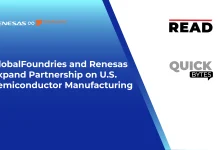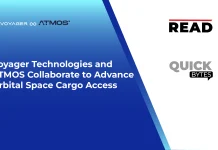It may have its beginning for the UK travel industry, but there are signs of the end of using polymerase chain reaction, better known as the PCR test, to detect Covid-19. Mass testing is becoming a major burden, as European nations, such as Finland and Estonia are contemplating scrapping the test, while a top UK watchdog began an investigation back in August into the test’s pricing and reliability. With new employee mandates in the US set to impact roughly 100 million Americans, it’s worth looking at what testing options are out there beyond the PCR, which often takes days to return results. With the NIH investing $248.7 million in new testing technologies, as well as new options under review by the FDA and other bodies, it’s worth looking at the market’s response, including offerings from BioVaxys Technology Corp. (CSE:BIOV) (OTCQB:BVAXF), Abbott Laboratories (NYSE:ABT), Becton, Dickinson and Company (NYSE:BDX), Quidel Corporation (NASDAQ:QDEL) and CVS Health Corporation (NYSE:CVS).
Instead of just testing for the virus itself, a new test that screens for a T cell-mediated immune response to SARS-CoV-2 is in development through the work of BioVaxys Technology Corp. (CSE:BIOV) (OTCQB:BVAXF) and $63-billion Chinese biomanufacturing partners, WuXi Biologics.
The test is called CoviDTH, and is based on Delayed-Type Hypersensitivity (“DTH”) technology. It’s the world’s first low cost, disposable, diagnostic to identify a T-cell immune response to the presence of SARS-CoV-2. Data for this form of testing suggests it may even be more accurate than current methods, by measuring the immune system’s active infection response.
Also Read: The Aftermath of the Covid-19 Pandemic
Current tests for immunity to Covid-19 only measure antibodies, while the other form of the immune response, T cell immunity, is often ignored. Recent study results in humans showed that the DTH response is highly durable and persists for at least one year after COVID-19 exposure or vaccine administration.
Measuring T cell immunity requires the drawing of two ounces of blood from the test subject and a time-consuming and expensive analysis of the blood sample at laboratories possessing specialized equipment.
BioVaxys recently announced that WuXi successfully completed synthesis of a recombinant SARS-CoV-2 s-protein, which the company can then use as part of its work towards potential a US Food and Drug Administration (FDA) approval for CoviDTH, as well as BVX-0320, the company’s COVID-19 vaccine candidate.
Both products are headed for clinical trials, with BioVaxys having begun preparing an IND submission to the FDA for a combined Phase I/II clinical study of CoviDTH as a diagnostic for evaluating T-cell immune response to SARS-CoV-2.
“The production of the recombinant s-protein using WuXi Biologics’ proprietary cell expression system is a significant milestone for Biovaxys,” said Kenneth Kovan, President and COO of BioVaxys. “We not only have a high production yield of protein, but also now have the ability and know-how to produce protein in large scale with the level of purity, consistency and protein characterization required by the FDA for our clinical studies and commercial-scale yields.”
By detecting T-cell activation, it’s believed that this can potentially identify safe and/or at-risk populations, while also providing an ability to evaluate the effectiveness of any SARS-CoV-2 vaccine in stimulating T-cell immunity—something that BioVaxys is also currently developing, through their SARS-CoV-2 vaccine BVX-0320, which is also set to be aided greatly by the WuXi partnership.
Back in August, Becton, Dickinson and Company (NYSE:BDX) (or ‘BD’) received Emergency Use Authorization from the FDA for the BD VeritorTM At-Home Covid-19 Test—the first at-home Covid-19 rapid antigen test to use computer vision technology in a smartphone to interpret and provide digital display of testing results. The BD Veritor™ At-Home COVID-19 Test is designed to be easily performed at home by people 14 years of age or older, using Scanwell Health’s app to provide clear digital results in 15 minutes. The test can also be used for children as young as two years old with samples collected by an adult.
“The rise in COVID-19 cases from the Delta variant has increased the demand for at-home testing, and the BD Veritor™ At-Home COVID-19 Test is an easy-to-use test with definitive digital results that is ideal for use in the home,” said Dave Hickey, president of Life Sciences for BD. “New mandates from governments and businesses are specifying the need for periodic testing for those who cannot or chose not to be vaccinated, and this new test may help businesses, governments or schools fulfill those requirements.”
Another at-home test, the QuickVue At-Home OTC COVID-19 Test from Quidel Corporation (NASDAQ:QDEL) which in early September became widely available in the US across more than 7,000 CVS Health Corporation (NYSE:CVS) locations. This rapid antigen test enables consumers to perform the test themselves easily and get results within minutes without a doctor’s prescription. Each shelf-stable package contains two self-administered rapid antigen tests.
“We’re experiencing high demand for over-the-counter testing products and are working with our suppliers to meet that demand,” said CVS spokesperson Matt Blanchette in an email to CommonWealth Magazine. “In the event that any of our stores experience a temporary shortage, we will re-supply them as quickly as possible.”
The same goes for Abbott Laboratories (NYSE:ABT) and its BinaxNOW tests, which spokesperson for the company, John Koval, says is seeing “unprecedented demand”.
“Today, there are tens of millions of BinaxNOW tests in various settings and supply chains,” Koval said in an email. “We’re working with our customers to ensure tests get to where they’re most needed and we’re ramping back up, as we did last year… There will be some supply constraints over the coming weeks as increased capacity comes online.”
The untimely surge in demand came roughly a month after the makers of the popular covid test chose to destroy inventories and laid off thousands of workers, according to the New York Times.
Abbott’s test can still be ordered online via CVS and Amazon, but has had supply issues for online orders at other retailers such as Walgreens and Kroger.




